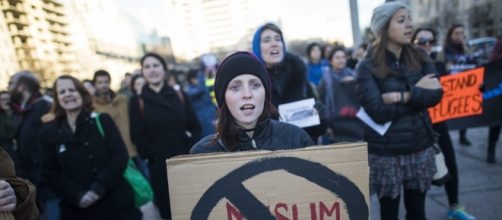The latest affront by the US President banning Muslims refugees from Syria, Iraq, Iran, Libya and Somalia from entering the United States will not guarantee the safety of the country, but rather, act as a fertile ground for potential home grown radicalization of terrorists who are likely to view the extreme measures imposed on Muslim migrants as war against the religion.
Order contravenes Geneva agreement
The move from Washington is uncalled for, and disregards the Geneva Convention. President Trump, on Friday signed an executive order that indefinitely bars admission for Muslim refugees from countries perceived to be bedrocks of terrorism.
The new executive order also empowers migration officials to exert "extreme vetting" on Muslim immigrants, in a bid to identify and stop radical, Islamic terrorism.
Democrats are against the order
Senator Cory Booker and a host of other Democrats have viciously criticized the executive order. Furthermore, a federal judge in New York blocked part of President Trump’s executive order even though the White House was quick to clarify that the judge’s decision does not supersede the presidential executive order.
This executive order has also been widely criticized as inhuman, with countries such as Iran reportedly contemplating counter measures targeting American citizens travelling or doing business in Tehran.
Should these countries make their threats real, the situation may turn complex and further exacerbate the tense relationship sparked by the unpredictable Trump presidency.
World leaders condemn Trump
On Sunday 17th German Chancellor Angela Merkel utterly disapproved of Trump’s latest assault, noting that it was "unjustified." With world leaders maintaining different stances regarding the surging migration crisis, the international diplomacy regarding the refugee calamity may just take another nosedive.
The move from Washington may also interfere with the ongoing war against radical Islam. Iran, which is an ally of the US in its war against ISIL in Iraq, may retaliate by simply recalling its forces fighting extremists groups in Syria and Iraq.
This may likely empower terror groups like ISIS in the region, making a bad situation worse.
President Trump's government should holistically contemplate the probable dangers of having two separate vetting processes. Applying different vetting measures to various groups based on religion is likely to tear the social fabric, increase tension, and encourage home grown terrorism.

